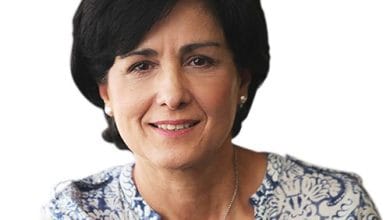
The Economist: Venezuela’s crisis spills over
 Latin America wakes up to its biggest headache
Latin America wakes up to its biggest headache
YOU find them driving taxis in Buenos Aires, working as waiters in Panama or selling arepas (corn bread) in Madrid. The number of Venezuelans fleeing hunger, repression and crime in their ruptured country grows by the day. For years, Latin American governments kept quiet as first Hugo Chávez and then his successor, Nicolás Maduro, hollowed out Venezuela’s democracy. Now their economic bungling and Mr Maduro’s increasingly harsh rule are causing a humanitarian crisis that the region can no longer ignore. At last, it is not.
Colombia and Brazil bear the brunt of the Venezuelan exodus. By one unofficial estimate, more than 1m Venezuelans now live in Colombia, though many have dual nationality. Colombian mayors have started blaming the migrants for unemployment and crime. Last year more than 7,600 Venezuelans sought care at hospitals in the Brazilian state of Roraima, straining facilities and supplies of medicine, according to Human Rights Watch, a pressure group. This week the mayor of Manaus in the state of Amazonas declared an emergency after hundreds of Venezuelans turned up.
The flood of refugees is one factor galvanising the region’s governments. The other is Mr Maduro’s descent into dictatorship. This accelerated in March when the puppet supreme court decreed, in effect, the abolition of the opposition-controlled legislature. Although partially reversed, this sparked continuing protests. Mr Maduro announced plans to arm a militia and, this month, to convoke a handpicked assembly to rewrite Chávez’s constitution of 1999. He is using military courts against protesters.
In response, 14 governments, including those of Argentina, Brazil and Mexico, have united to demand a timetable for elections, the recognition of the legislature and the freeing of political prisoners. On April 26th, 19 of the 34 members of the Organisation of American States (OAS), a regional body, voted to convene a meeting of foreign ministers to discuss Venezuela. Getting his retaliation in first, Mr Maduro said that Venezuela would leave the OAS.
He retains the support of 25% of the population and of the security forces (some from ideological conviction, others because of perks or corruption). His recent actions suggest that he plans to turn Venezuela into an autarkic dictatorship in the mould of Fidel Castro’s Cuba.
That would not be easy. Unlike Cuba, Venezuela is not an impregnable island and it has a democratic culture. Mr Maduro’s actions are opening up fissures in his chavista movement. Three army lieutenants have sought asylum in Colombia. The attorney-general, several retired generals and former ministers criticised the judicial coup against the legislature. “The government is losing control,” Miguel Rodríguez Torres, who was Mr Maduro’s interior minister, told the Wall Street Journal this week. He warned of “anarchy on the streets”.
This opens up scope—and a need—for diplomacy to help broker a return to democracy. But who could lead that effort? “Dialogue” became a dirty word for the opposition after Mr Maduro last year exploited talks organised by the South American Union (Unasur) and the Vatican to gain time.
Behind the scenes, several overlapping initiatives are under way. Argentina has replaced Venezuela in chairing Unasur. The tenure of Ernesto Samper, a chavista sympathiser, as its secretary-general has ended. At a meeting in Quito on May 23rd, Unasur’s foreign ministers may choose as his replacement José Octavio Bordón, a well-connected Argentine diplomat and former politician.
Several presidents are talking about setting up an ad hoc group of countries of the kind that negotiated an end to the Central American civil wars of the 1980s. They would like to get the UN involved, but António Guterres, its new secretary-general, has been cautious. The group might have to include Cuba and the United States, which both have interests in Venezuela. Although Donald Trump’s administration may impose unilateral sanctions on Venezuelan officials (it has already done so against the vice-president, Tareck El Aissami), it would be wiser to join a co-ordinated regional effort.
Any negotiation would have to involve an amnesty. That would be anathema to many in the opposition, who want to see the regime’s leaders on trial for murder and corruption. But the opposition lacks the strength to bring Mr Maduro down. Perhaps the army will do that job, but this is neither certain nor necessarily desirable. Sooner or later, both sides may have to return to the negotiating table—or watch as ever more Venezuelans take the road to exile.
